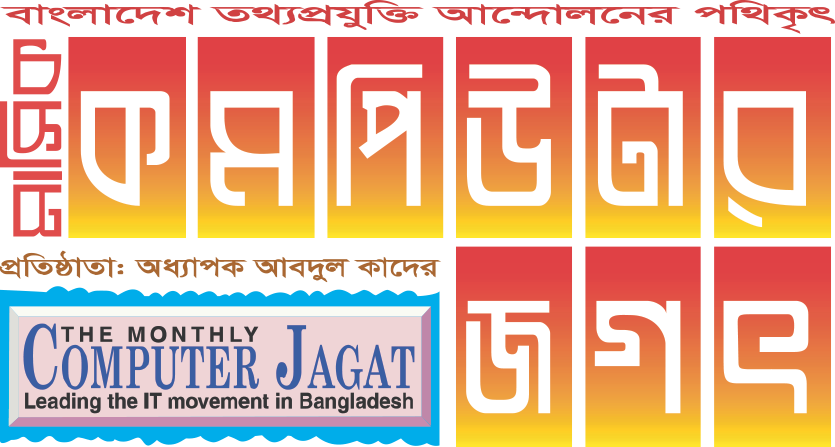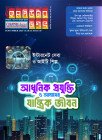হোম > Bangladesh Owns Lots of Opportunities to Implement Good Coding and Security Practices
লেখক পরিচিতি
লেখকের নাম:
মো: আবদুল ওয়াজেদ
মোট লেখা:২৮
লেখা সম্পর্কিত
পাবলিশ:
২০০৯ - মার্চ
তথ্যসূত্র:
কমপিউটার জগৎ
লেখার ধরণ:
বাংলাদেশ->প্রকল্প
তথ্যসূত্র:
ইংরেজি সেকশন
ভাষা:
বাংলা
স্বত্ত্ব:
কমপিউটার জগৎ
Bangladesh Owns Lots of Opportunities to Implement Good Coding and Security Practices
Dr. Bradley K. Jensen Says :-
Bagladesh Owns Lots of Opportunities to Implement Good Coding and Security Practices
The American International University Bangladesh, as the MSCPE (Microsoft Security Cooperation Partner in Education) in Bangladesh, organized a two day long workshop at AIUB on February 16 and 17, 2009 on ÔMicrosoft Innovation and Security ProgramsÕ. The workshop was conducted by Dr. Bradley K. Jensen, Academic Relationship Manager of Microsoft.
Dr. Bradley K. Jensen
Dr. Bradley K. Jensen is a Microsoft Corporation Academic Relationship Manager responsible for Texas, Oklahoma, Arkansas, and Louisiana. Prior to Microsoft, he was an Assistant Professor in Information Technology and Decision Sciences and Assistant Director of the Information Systems Research Center at the University of North Texas, and was also President of JMC Consulting Services, an executive management consulting firm which provides strategic and tactical IT consulting services. He received his Ph.D. in Business Computer Information Systems from the University of North Texas, with majors in Business Computer Information Systems and Computer Science. He was nice enough to give us some of his time in discussing the workshop that he had conducted in Dhaka.
Computer Jagat: Can you give us a brief description of the workshop that you have conducted?
Dr. Jensen: The workshop was divided into two sessions. The first session was on the Secure Development Lifecycle and Threat Modeling and the second session was on Business Intelligence tools. The topics in the security workshop discussed aspects of threat modeling, code testing and the impacts on development when using the Secure Development Lifecycle.
Computer Jagat: Can you tell us about the background of this workshop?
Dr. Jensen: Back in the 70’s, security was not really the issue that it is today. Internet security as we know it today became an issue somewhere in the 80’s. Back in early 2000/2002 time frame, Microsoft had received a lot of complaints about the quality of our software products and about their responsiveness to security issues. At that time we had a lot of complaints from customers. So we stopped all development and completely re-wrote portions of our code to comply with secure coding practices and in the process developed what is known today as the Secure Development Lifecycle. As a result, there were major security improvements in the quality of our software products. As a result of our success, a lot of other companies wanted to know what it was that we are doing and what are the characteristics of our coding standards. So that’s what I’m doing right now: going around, conducting workshops and talking to organizations, governments, and universities about what our Secure Development Lifecycle is and how to leverage it to improve the quality of your products.
Computer Jagat: Who was the target audience for this workshop?
Dr. Jensen: Our target audiences were faculty, students, people who work for the government and people who work for any business. We had a lot of senior government officials attending our workshop. And this is great! Because, we had the faculty, students, the businessmen and the government officials sitting in the same workshop and learning the same things.
Computer Jagat: How do you think this workshop will be helpful for Bangladesh?
Dr. Jensen: Bangladesh is a country where a lot of the government and non-government organizations are trying to produce their systems in-house. For example, AIUB is developing pretty much all of their systems in-house. So there are lots of opportunities to implement good coding practices and good security practices. This will also make the resulting applications much more attractive to consumers.
Computer Jagat: What do you think about the respond that you got from the people who attended the workshop?
Dr. Jensen: It’s really different every time I conduct a workshop. Here, I think, People were very interested in learning whatever I had to teach. There were about 85 people including undergrad and masters students and a lot of government officials and their response was very receptive. The audience for these workshops were fantastic and I very much would like to come back and do more workshops in Bangladesh.
Computer Jagat: Do you have any future plan to conduct any other workshop in Bangladesh?
Dr. Jensen: Well, I’m leaving for my home this evening. But I would definitely like to come back to Bangladesh because we did not have enough time to cover all the aspects of the Secure Development Lifecycle and Business Intelligence. For example, there are a lot of tools in Risk Management and a lot of tools in coding that still need to be discussed. Therefore, we will need many many more hours of classroom training.
Computer Jagat: What would be the next step from Microsoft to help Bangladesh in this field?
Dr. Jensen: Microsoft has been in Bangladesh for five years. Our plans are literary to help Bangladesh however and wherever we can. We now have our MSP (Microsoft Student Partners) and AA (Academic Alliance) in several universities in Bangladesh and we have IT academies throughout the country. There are lots of initiatives that we have done. I have talked about Open Source in the workshop. We have Open Source for some of our operating systems and we have the source code for use by faculty and students. We make them available to the universities to teach and use.
Computer Jagat: On behalf of all our readers, we thank you for helping us in such ways. And thank you so much for your time.
Dr. Jensen: Thank you very much. It’s been a pleasure!
CJ Web
Feedbac : wazed@comjagat.com
লেখাটি পিডিএফ ফর্মেটে ডাউনলোড করুন
পাঠকের মন্তব্য
অনুরূপ লেখা


